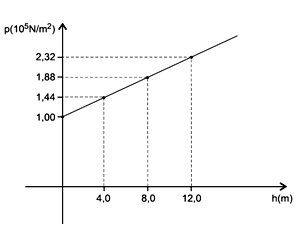(PUC-RIO) Are You A Digital Native or A Digital Immigrant?
We all know that we are living in an increasingly technologically driven world. Living here in the heart of Silicon Valley I certainly feel it every day. In fact, I don’t think I know a single couple in my neighborhood, other than my wife and I, who don’t work in the technology field in some capacity. Our local companies are Facebook, Apple, Google, Yahoo, and so many venture capital firms that I can’t keep them straight. But you don’t have to live in Silicon Valley to feel that the world is getting more and more technology centered, focused, and driven. We can debate the pros and cons of this reality but 9we can’t deny that the world has changed very quickly in head spinning ways. Two recent comments led me to finally enter the 21st century 2by getting a smart phone this week, kicking and screaming.
First, I mentioned to one of my undergraduate classes at Santa Clara University that I didn’t have a smart phone, but rather I had a 8dumb phone. 10My phone can make and receive phone calls and that’s about it. No email, internet, and so forth. 3So one of my students looked at me in an odd and curious way, like she was talking to someone from another planet, and stated in 11a matter of fact manner, “Professor Plante, even 2nd graders have smart phones.” Ouch!
Second, 4I was talking with a producer at the PBS NewsHour who wanted me to do a live interview within a few hours of his call regarding some late breaking news about clergy sexual abuse, which is my specialty. I was out of the office and driving my car when he called and in 12a matter of fact manner he said that he wanted to send me some important information to my smart phone to best prepare me for the upcoming interview. When I told him that I couldn’t receive anything since I had a dumb phone and not a smart phone, there was a long silence. 1He then said he’d have to just read it to me over the phone as a Plan B. He wasn’t happy ... neither was I.
7In case you haven’t noticed, the 21st century is really upon us and to live in it one really does need to be connected in my view. Although I often consider myself a 19th or 20th century guy trapped in the 21st century we really do need to adapt. For most of us we are just living in a new world that really demands comfort with and access to technology.
This notion of digital native vs. digital immigrant makes a great deal of sense to me. Young people in our society are digital natives. They seem to be very comfortable with everything from iPhones to TV remotes. Digital immigrants, like me, just never feel that comfortable with these technologies. Sure we may learn to adapt by using email, mobile phones, smart ones or dumb ones, Facebook, and so forth but it just doesn’t and perhaps will never be very natural for us. It is like learning a second language ... you can communicate but with some struggle.
This has perhaps always been true. I remember when I was in graduate school in the 1980s trying to convince my grandparents that buying a telephone answering machine as well as a clothes dryer would be a good idea. They looked at me like I was talking in another language or that I was from another planet.
5Perhaps we have a critical period in our lives for technology just like we do for language. 6When we are young we soak up language so quickly but find it so much harder to learn a new language when we are older. The same seems to be true for technology.
So, this week I bought my first smart phone and am just learning to use it. When questions arise, I turn to my very patient teenage son for answers. And when he’s not around, I just look to the youngest person around for help.
So, what about you? Are you a digital native or a digital immigrant and how does it impact your life?Adapted from “Digital Native vs. Digital Immigrant? Which are you?”
Published on July 24, 2012 by Thomas G. Plante, Ph.D., ABPP in Do the Right Thing http://www.psychologytoday.com/blog/do-the-right-thing/201207/digital-native-vs-digital-immigrant-which-are-you retrieved on July 28, 2012
“We can’t deny” in “...we can’t deny that the world has changed very quickly...” (ref. 9) and “My phone can make” in “My phone can make and receive phone calls...” (ref. 10) express the ideas of, respectively:

